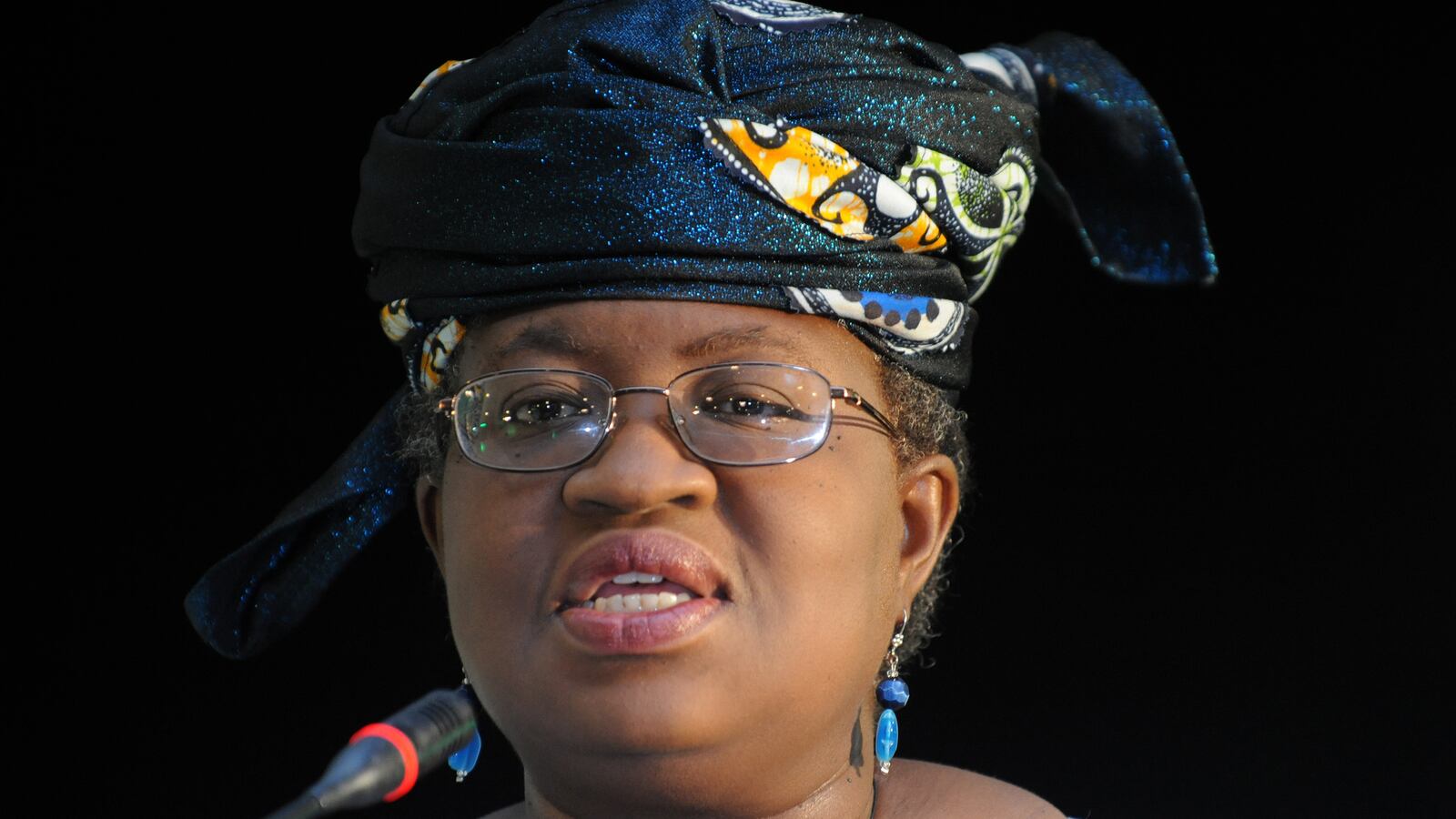She is referred to locally as “Queen Mother” or “Majesty,” but Kamene Okonjo, the 82-year-old professor who was snatched from a palace in Nigeria yesterday, is most famous for being a mother.

Her daughter, Finance Minister Ngozi Okonjo-Iweala, is one of Nigeria’s most prominent ministers and a recent contender for World Bank president. The husband of the kidnapped matriarch is one of many traditional rulers or “kings” in the Niger Delta, a region awash in oil wealth, kidnappings, and an illegal fuel trade.
Delta State Director of Information Austin Mowah says every security agency in the state is now searching for the group of armed men who grabbed the elder Okonjo around midday on Sunday.
“All security agencies in the state have been ordered to do everything possible to find her,” he says. “Everybody is worried.”
The state government is taking a strong public stance against the kidnapping, and Mowah says security forces have 24 hours to find Okonjo and bring her in safe, or else. The deadline would expire in the early afternoon Monday, but he couldn’t describe what consequences would befall security forces if they fail.
Nigeria often is described as one of the worst countries in the world for kidnapping, with the phenomenon amounting to an industry that rakes in millions of dollars a year. John Campbell, a senior fellow at the Council on Foreign Relations and a former U.S. ambassador to Nigeria, says it’s hard to quantify the kidnapping industry but calls it a “big deal that costs a lot of money.”
In the mid-2000s it was mostly foreign oil workers who were taken for ransom and to pressure the government into sharing oil wealth with the people. More recently, it has been almost entirely Nigerians who have been kidnapped, mostly for cash.
The disappearance of the minister’s mother, Campbell says, probably is a financial deal that may be resolved quietly with a large payment—if the perpetrators are not caught. But there could be more to it. Okonjo-Iweala is a controversial figure who often is blamed for a sudden slash in Nigeria’s fuel subsidy program early this year. Economists praised the move, but the price of fuel and food doubled and tripled almost overnight, setting off nationwide protests.
The Finance Ministry admits to having received recent threats, but says it has no idea if they are connected to the abduction. “It’s possible that there is a political dimension because she’s a political figure, and one that has attracted an amount of hostility,” Campbell says. “But if I were a betting man, I’d bet this is a straight mercenary crime.”
Even if the kidnapping has nothing to do with politics, there is a political consequence, Campbell adds. Namely, it further embarrasses the administration of President Goodluck Jonathan, which has been widely criticized for being weak on security, as the Islamist militant group Boko Haram wraps up the bloodiest year of its 10-year history. Campbell says Boko Haram’s growth, and other recent attacks on heavily fortified targets, could be a sign that Nigeria’s security system is breaking down.
“If an 82-year-old lady that is the mother of the finance minister is kidnapped that tells you something about security,” he says.
Niger Delta authorities insist that kidnapping has decreased dramatically in recent months, with Mowah, the information director, saying Sunday’s abduction was “from the blue.” But kidnapping often is not reported, and many observers say the criminals actually are getting stronger and bolder.
Edward Oforomeh, a Delta state lawyer who specializes in human rights and criminal law, balks at the idea that the Niger Delta is getting safer. “There are some people saying there is a reduction in kidnapping and then this happens?” he says. “Does that [add up to] one plus one?”





